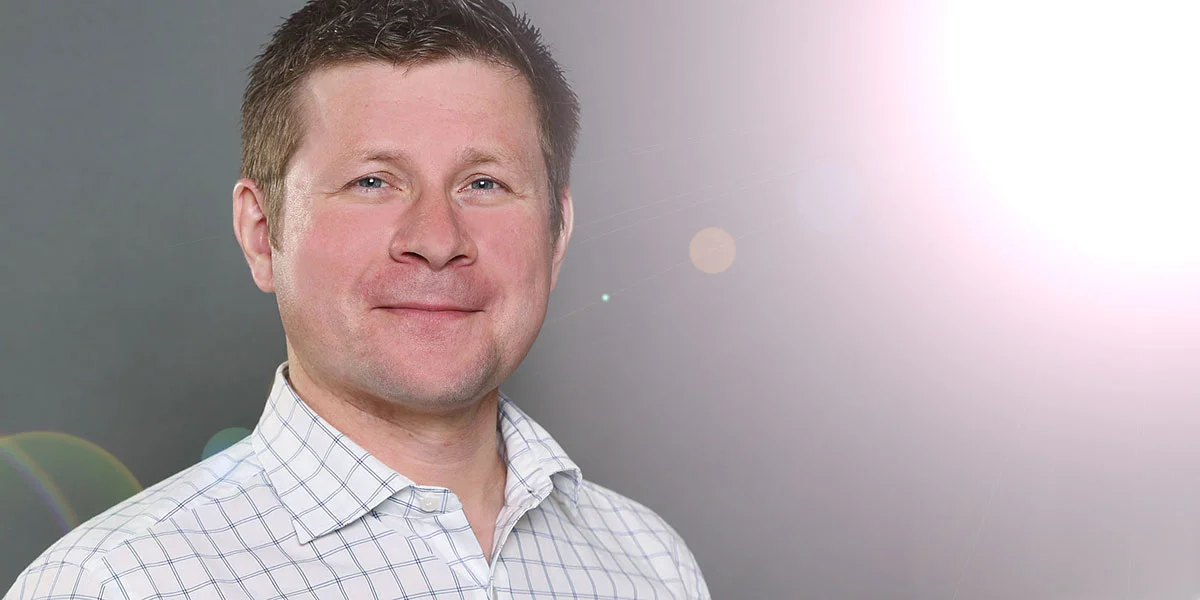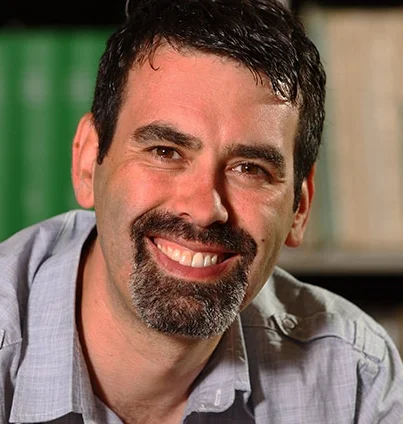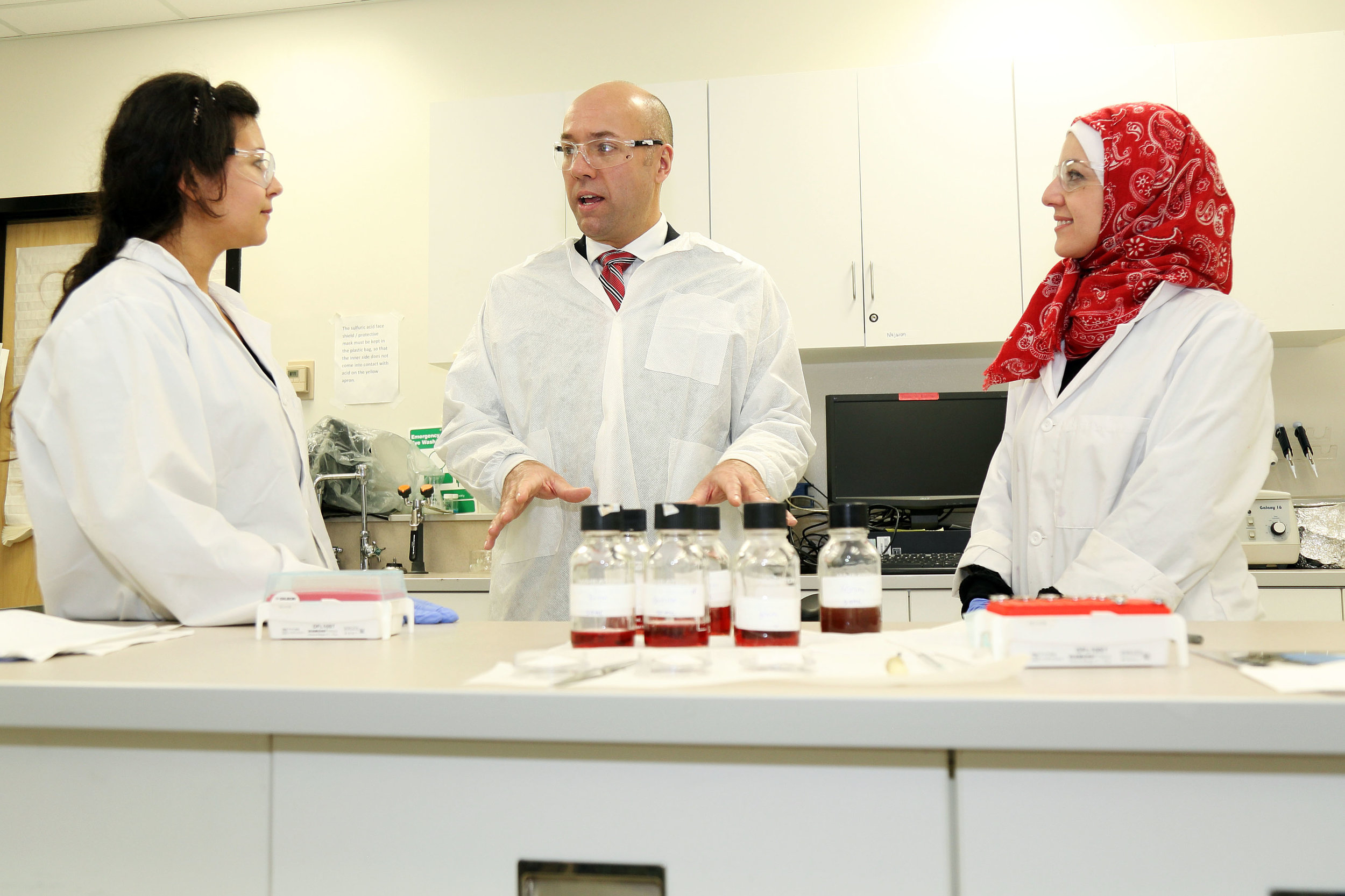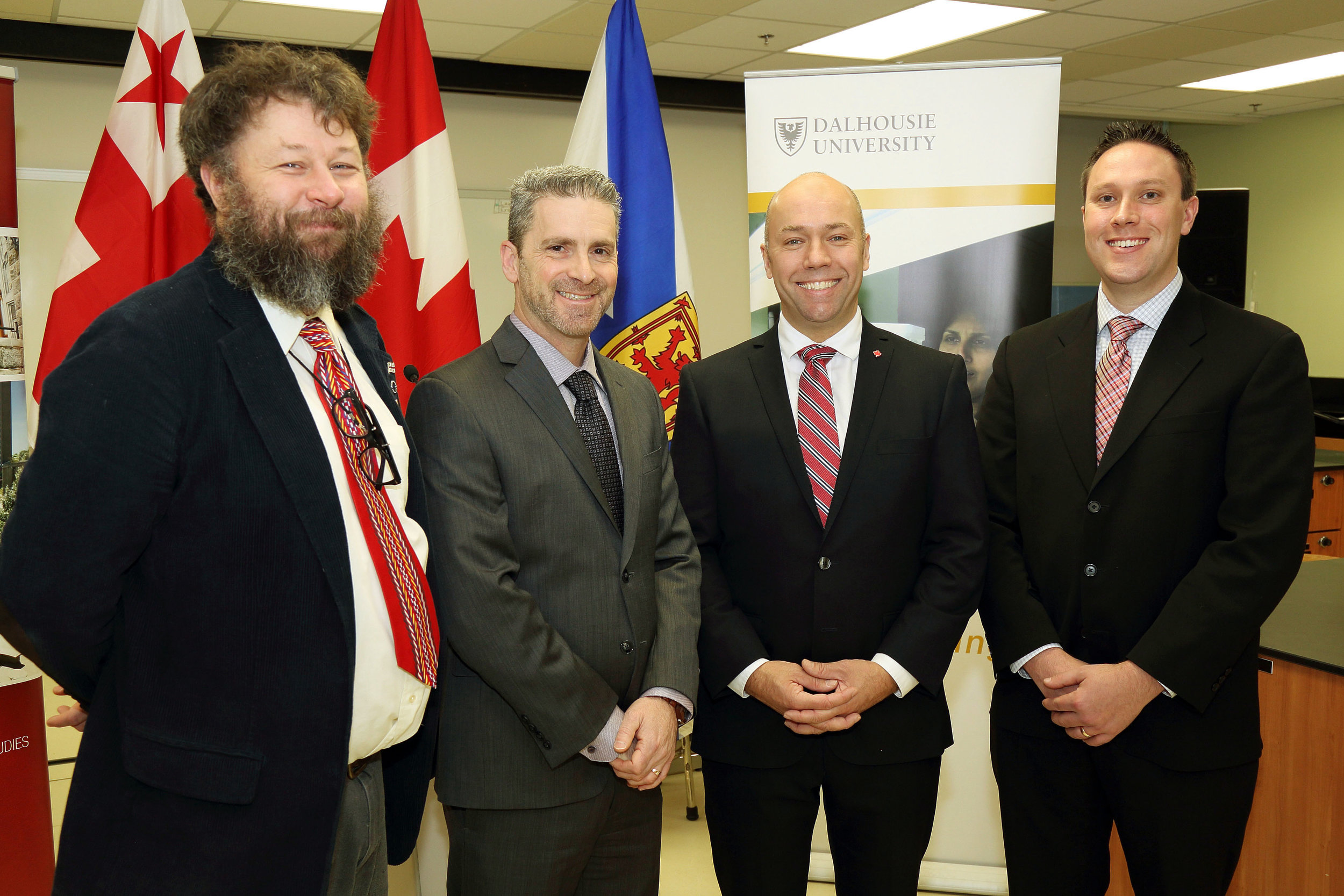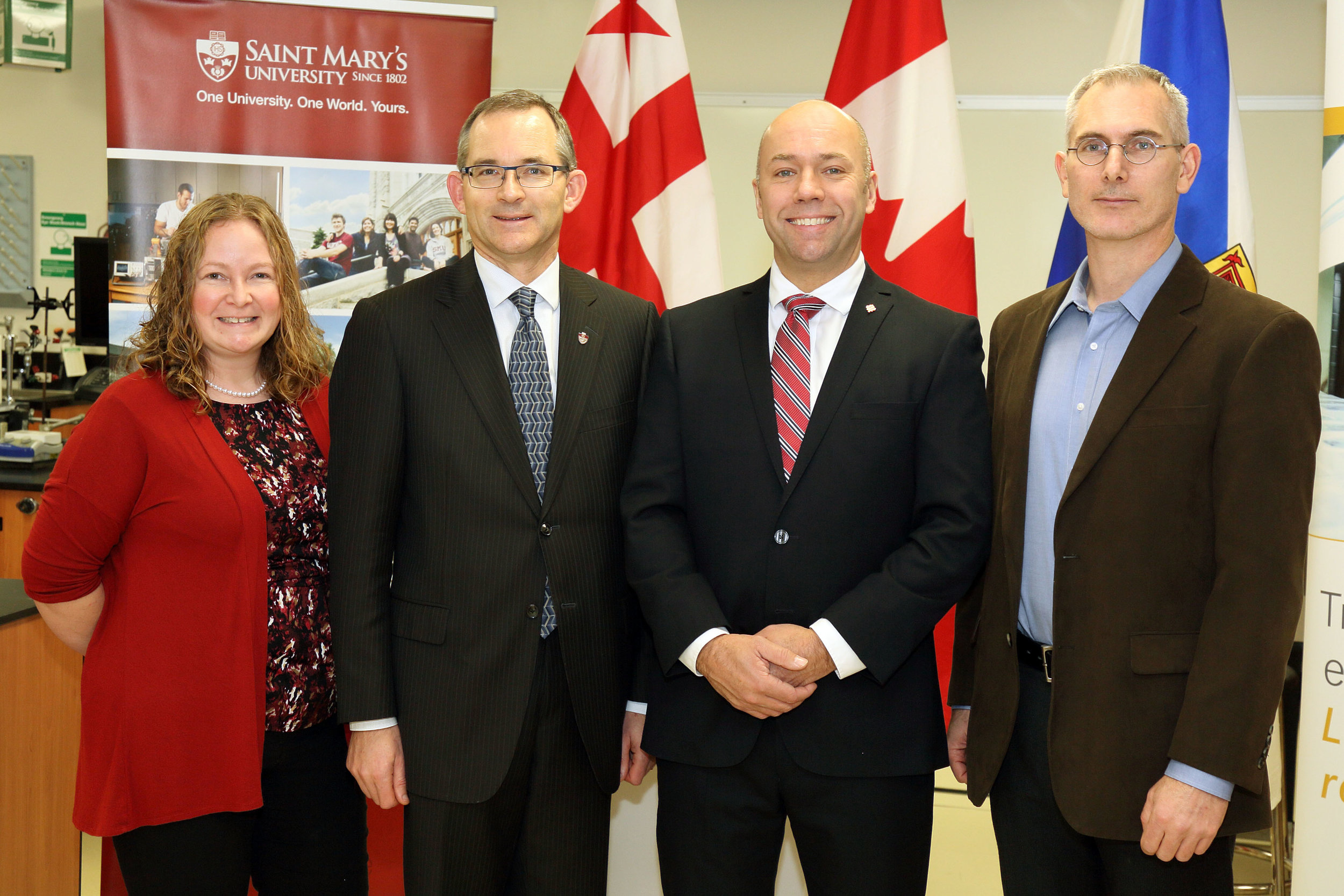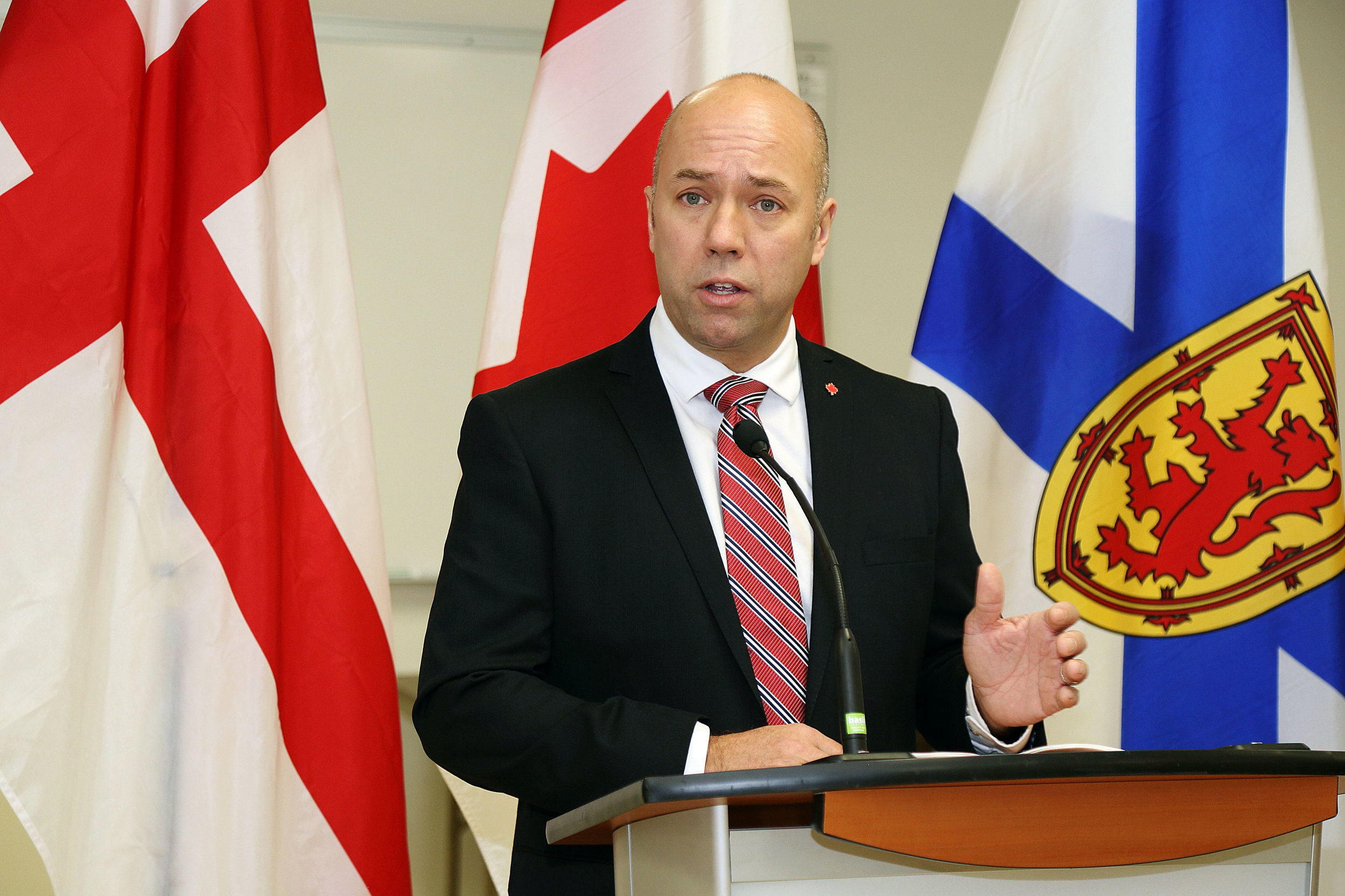Amy Heim
Saint Mary’s University is proud to announce that Amy Heim, a PhD candidate in the Faculty of Science, is the recipient of a three-year Vanier scholarship worth $50,000 per year.
Heim’s work is in the area of Evolution and Ecology, and she was honoured for her research proposal titled “Using traits to enhance plant co-existence and maximize ecosystem services in the green roof environment.”
“I am very excited that Amy won this scholarship. It’s a great endorsement of her innovative research,” said supervisor Jeremy Lundholm.
A plant community ecologist who specializes in understanding the co-existence mechanisms between plant species in harsh environments, she is currently working in two distinct environments: the coastal barrens of Nova Scotia and on extensive green roofs.
Heim explains that both habitats are exposed to drought, high wind, and extreme temperatures, making them useful habitats to compare co-existence patterns in a natural and artificial environment.
“For my green roof research I am looking at how specific combinations of species with specific plant traits can improve the ecosystem services provided by green roofs,” says Heim.
Her work also focuses on better understanding how urbanism impacts humans and the environment as more people move to cities. “Our research will develop a practical approach for selecting high-performance plant combinations that will make green roofs more efficient, reducing several issues related to urbanism,” she explained.
When asked what this scholarship means to her, Heim said that it will let her fully concentrate on her research, and also make it easier for her to create collaborations with researchers across the globe. She has plans to complete an internship with a green roof researcher in Japan during the fall of 2018.
“As an international student, Amy is not eligible for regular NSERC scholarships, so we are grateful for this level of support for her PhD studies. This frees up grant funding and as a consequence I can now fund Amy’s travel to a conference in Italy in the fall,” said Lundholm.
“Research is a collaborative effort so I believe these opportunities will enhance my own studies,” says Heim.
About Vanier Scholarships
Vanier Scholarships are awarded to students in the areas of health research, natural sciences and/or engineering, and social sciences and/or humanities research.
The Vanier Canada Graduate Scholarships program aims to attract and retain world-class doctoral students by supporting students who demonstrate both leadership skills and a high standard of scholarly achievement in graduate studies in the social sciences and humanities, natural sciences and engineering, and health sciences.
Three equally weighted evaluation criteria are considered: academic excellence, research potential, and leadership.
Canadian and international students are eligible to be nominated for a Vanier CGS. Vanier CGSs are valued at $50,000 per year, for up to three years. For more info, visit the Government of Canada site.




